Musawah’s Knowledge Building Tools & Resources page offers a treasure trove of materials designed to empower activists, religious scholars, policymakers, and all those passionate about advancing equality and justice within Islam while countering the misuse of Islam to justify discrimination against women.
Engaging with Your Concerns
At Musawah, we understand your concerns and questions. We aim to make our content relatable and empowering. Have you ever wondered about the differences between Shar’iah, fiqh, and Islamic Law? Our resources are here to aid you in developing your answers.
Unlocking the Power of Knowledge
Our Knowledge Building Briefs provide valuable insights into critical aspects of Islamic jurisprudence and family laws:
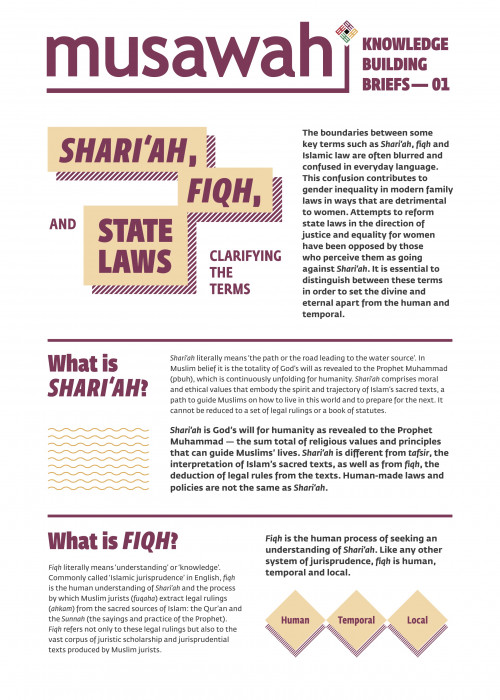
Are you curious about the distinctions between Shari’ah, fiqh (jurisprudence), and Muslim family laws? Discover how recognizing the divine and eternal nature of Shari’ah, separate from human-made fiqh and contemporary Islamic laws, is crucial for reform efforts.
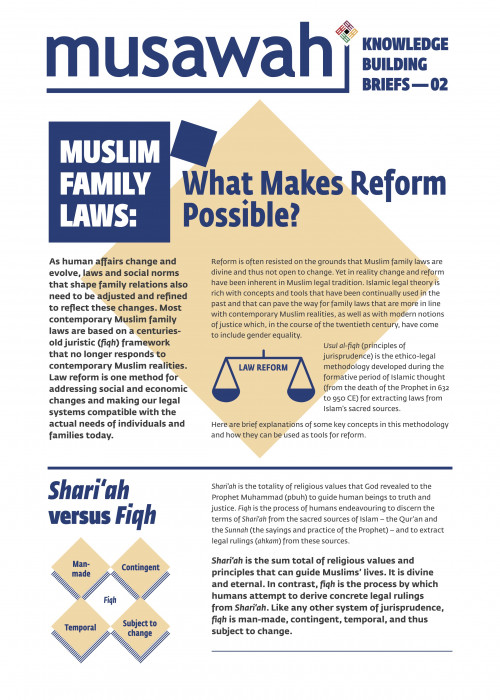
Debunk the misconception that Muslim family laws are immutable due to their divine origins. Explore the rich tradition of change and reform within Muslim legal history, offering conceptual tools and legal methods for aligning Muslim family laws with modern realities and conceptions of justice.
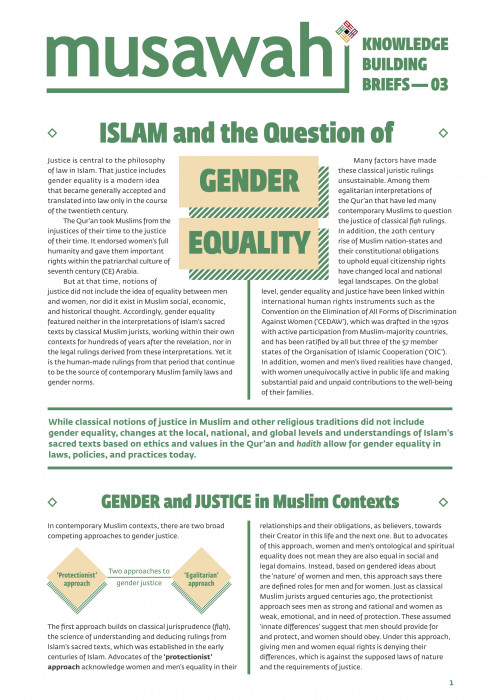
Dive into a discussion on the evolving relationship between Islam and gender equality. Classical fiqh constructed gender and rights concepts that no longer resonate with today’s realities. Explore the need to reinterpret the egalitarian ethical principles of the Qur’an for contemporary contexts.
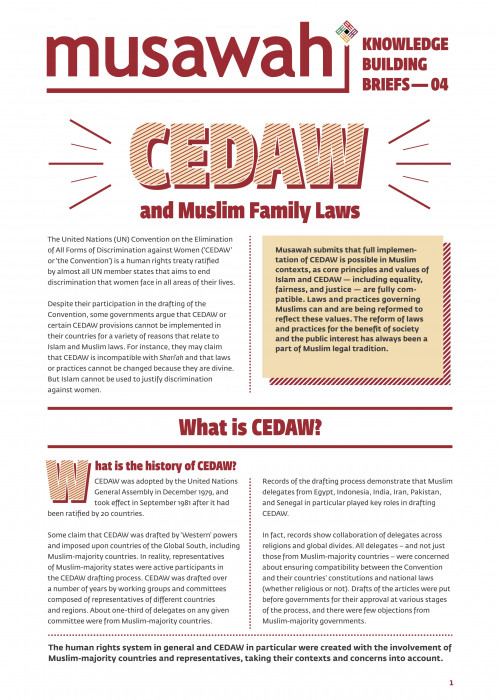
Discover how the full implementation of CEDAW (Convention on the Elimination of All Forms of Discrimination Against Women) is not only possible but essential in Muslim contexts. This brief explains how CEDAW can become a powerful mechanism for States-parties to achieve gender equality, despite some resistance.
Knowledge Building Videos
Our knowledge videos provide engaging visual content. Filled with bitesize, easy to follow information, they are perfect for sharing and generating conversations:
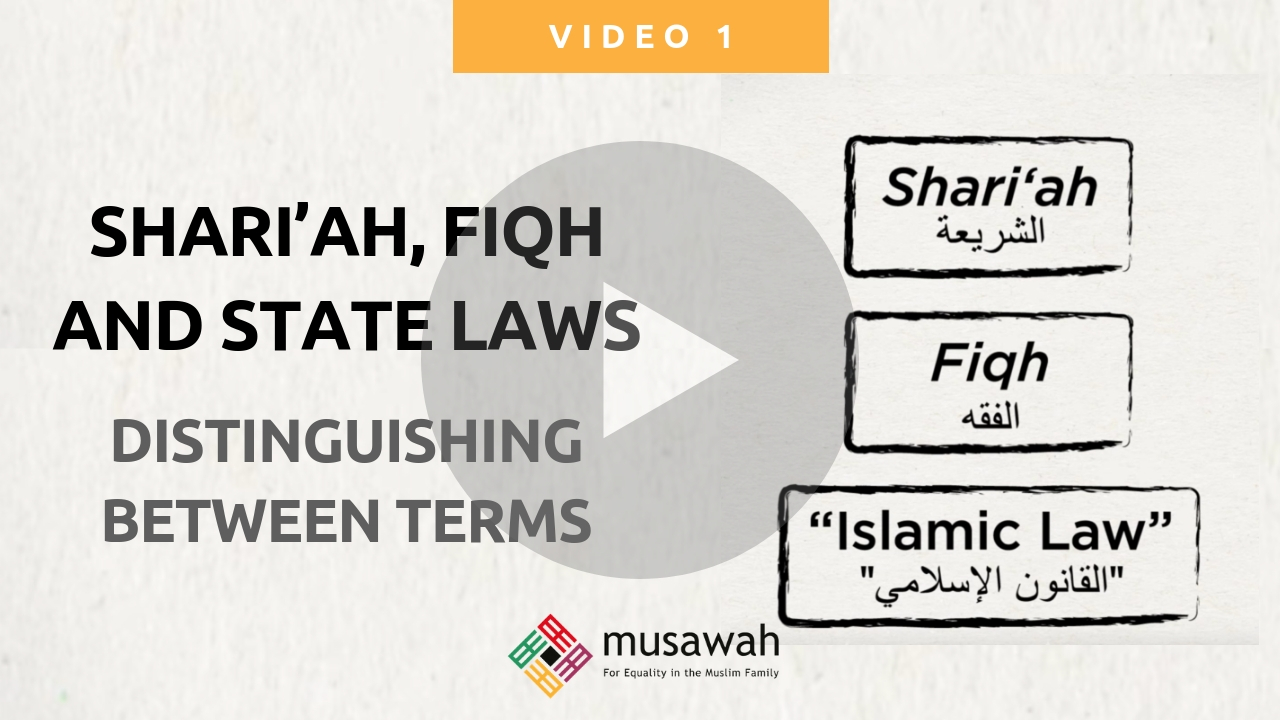
Shariʿah, Fiqh and State Laws
In this video, we unravel the often blurred boundaries between Shariʿah, fiqh, and Islamic law. Such confusion can perpetuate gender inequality in modern family laws. Learn why it’s vital to distinguish these terms, separating the divine and eternal from the human and temporal.
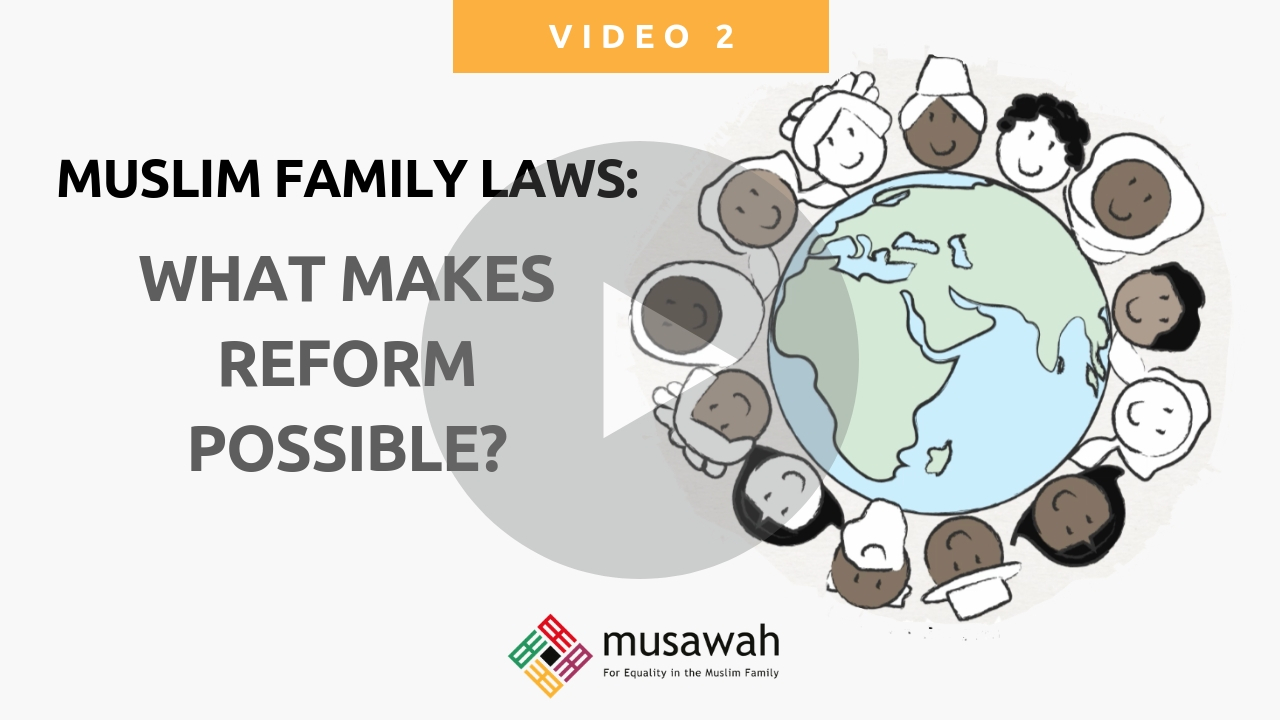
Muslim Family Laws: What Makes Reform Possible?
Explore the inherent capacity for reform within Muslim legal tradition, countering the notion that Muslim family laws are unchangeable due to their divine origins. Discover the concepts and tools that pave the way for family laws in harmony with contemporary Muslim realities, justice, and gender equality.
Subscribe and Stay Updated
Join us in our journey to promote justice and equality in Muslim families. Together, we work for the advancement of human rights for women in Muslim contexts, in both their public and private lives. The time for equality and justice is now!
